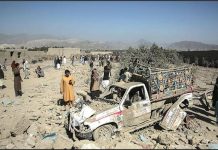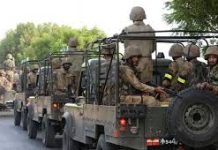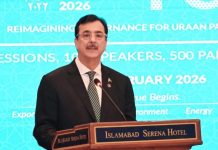Mukhtar Ahmed Butt
China celebrated its National Day on October 1st, marking the historic moment when Chairman Mao Zedong proclaimed the founding of the People’s Republic of China in 1949. That vision has since transformed into a remarkable reality: China today stands as the second-largest economy in the world, a formidable global actor, and a potential superpower challenging Western hegemony. Its rise has reshaped the contours of global politics, economics, and security, compelling the world to reckon with its growing influence.
China’s Role in Global Politics is now worrying West.
China Challenging Western Dominance increasingly presents itself as a counterbalance to US-led Western hegemony. Through forums such as BRICS, the Shanghai Cooperation Organization (SCO), and active participation in the United Nations, Beijing promotes multipolarity and rejects Western unilateralism.Belt and Road Initiative (BRI) Launched in 2013, the BRI is China’s most ambitious global project, involving infrastructure investment in over 140 countries. It enhances trade connectivity while extending China’s geopolitical reach across Asia, Africa, Europe, and beyond.The People’s Liberation Army (PLA) has undergone sweeping modernization. China has advanced in cyber, space, naval, and missile capabilities, becoming a serious competitor to U.S. military power in the Indo-Pacific.Through Confucius Institutes, foreign aid, medical diplomacy during COVID-19, and cultural exchanges, China builds an alternative model of influence distinct from Western liberal-democratic outreach.Notwithstanding changes taking place in global politics China’s achievements over the years cannot be overlooked. On top of the list is economic transformation.
From a poor agrarian state in 1949 to the second-largest economy in the world.Hundreds of millions lifted out of poverty under Deng Xiaoping’s reforms and subsequent leadership.World’s manufacturing hub, leading in exports and industrial production.There has been tremendous technological advancement. For example Home to global tech giants like Huawei, Alibaba, and Tencent.Leading in 5G, AI, green energy, and digital payments.Ambitious space program, including the Chang’e lunar missions and Tiangong space station. By sheer hard work proved great leadership in global trade.Member of WTO (2001), now the world’s largest trading nation.Creator of the Asian Infrastructure Investment Bank (AIIB) as an alternative to Western-dominated IMF/World Bank.It excelled in Geopolitical Influence being Asertive in the South China Sea and Taiwan issue.Strengthened ties with Russia, Iran, Africa, and the Global South.Expanding presence in global peacekeeping and mediation (e.g., Iran-Saudi rapprochement brokered by Beijing in 2023).
Now, the world is looking towards China’s future designs with superpower ambitions. By 2049, the centenary of the PRC, China aims to become a “fully developed, rich, and powerful socialist modern country.Beijing considers Taiwan’s reunification a “core interest” and a non-negotiable priority, potentially bringing it into confrontation with the U.S.Technological Supremacy. China seeks leadership in AI, quantum computing, and green technologies, reducing dependence on Western innovation. China wants Military dominance in Asia-Pacific:With an expanding navy and missile arsenal, China aims to secure its maritime boundaries and reducce U.S. influence in the region. Shaping Global Governance by expanding influence in the UN, IMF alternatives, and through initiatives like BRI, China seeks to reshape international institutions in ways that reflect its interests and values.China’s rise is not accidental but a product of long-term vision, pragmatic policies, and strategic adaptation to global realities. It has already altered the balance of power in the 21st century. Whether through economic expansion, technological leadership, or geopolitical assertiveness, China is crafting an alternative global order—one that challenges Western dominance and seeks to elevate Beijing into the role of a true superpower. The unending rise of China is thus both an opportunity and a challenge, reshaping the future of global politics in unprecedented ways.
In the multipolar world in which regional problems will be solved in the region China will have to play a leading role in resolution of Kashmir conflict. Both Russia and China in a multipolar world will have a strong diplomatic standing to have other powers of the region to stay part of the eastern bloc and ensure that the region creates enabling economic environment for development and progress, Eventually regional politics will take over from global politics and all the countries in Asia and even Eurasia will have to find solutions to their conflicts to create greater land and maritime connectivity to ensure progress. So, all the ongoing CPEC projects should continue with greater energy and drive and both China and Pakistan must try to complete them by 2030 which is the culminative year for the completion of these projects. Pakistan’s government can also consider the possibility of both Pakistani and Chinese troops carrying out joint patrolling along the border areas from where the CPEC routes pass. This can add to Chinese reassurance and would not have any reflection on the lack of capability on Pakistan’s security forces. Afterall, Pakistan has accommodated US and many of its security demands including providing military bases in Pakistan in the past. If we can do that for the US why can’t we do that for our neighbor and time tested friend China.?
The witer is free lance journalist and defence analyst


























